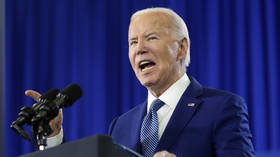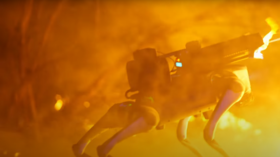Interview with Viktor Kremenyuk
Viktor Kremenyuk, Deputy Director of the U.S. and Canada Institute joined RT to comment on the Russo-American talks. He believes the real threat comes not from U.S. missile defence plans, but from ‘cold war’ thinking.
Russia Today: Do you think the U.S. anti-missile defence shield poses a threat to Russia?
Viktor Kremenyuk: I think the real threat to Russia right now comes from the strong residue of Cold War thinking in the heads of many analysts and politicians. These people regard everything which is good for the U.S. as bad for Russia and vice versa. I think that they simply fail to understand that we live in another world which started when the Cold War ended 15 years ago. Now we have a different world with different threats. And in this world the threat doesn’t come from Russia to the U.S. or from the U.S. to Russia. The threat is coming from other quarters, especially from possible terrorist attacks. Because both of us, as well as other developed nations, may one day become targets for such launches. This is the real threat.
RT: President Putin has asked the U.S. to ‘slow down’ with its plans. What do you think will come from that urge?
V.K.: First of all, he doesn’t say that the U.S. should not do it. He says ‘slow down’. Why? Because even though the U.S. is doing, implementing its programme of ABM defence, we have our programme. So, the problem is how to put the two together. What we really need is a global anti-ballistic missile system, which may give guarantees and security to all nations. It may one day become a target for the rogue states or for terrorist attacks. But the real technical, political and diplomatic problem is how to put our systems together, how to synchronize them. So, from this point of view, if the U.S. goes too quickly along its own way, it may become a real problem – technical, military and political – both for us and for the U.S. So, the suggestion is: slow down and let’s try to find the ways of how our two individual ABM systems may be put together and then we may go ahead together.
RT: How should we judge these talks? Will they be a success or a failure?
V.K.: It’s already a success. We, I mean our, heads of the foreign ministries or secretariats, and the defence ministers, have met and they are discussing a very important problem together. This is a challenge for both of us. And this is the challenge that should be confronted by both of us together. So, it’s already success when they sit down and discuss. I don’t want to be super optimistic and say that the solution is here. The solution will be very hard to find because it’s not simply how to put our technical capabilities together, but also to establish what the chain of command will be, who will take the decisions, what the other procedures will be. So, I understand that maybe we are not coming to the end of it, but we are only somewhere at the beginning. But if we want to do this, we shall do it.
RT: Russia and the U.S. have other disagreements apart from the U.S. anti-missile defence shield: they are the status of Kosovo and the Iranian nuclear programme, the human rights issue. However, both countries agree on the fight against global terrorism. Do you think there can be a possibility for some compromise in this area?
V.K.: You know, we need to talk to each other as often as possible. We need to share and discuss our views. So, the issue that we have problems in our relations is not something new to me or to anyone else. You were very diplomatic saying we have only these new issues – we have 10 times more issues than you mentioned. The problem is not in that, the problem is whether we can sit down and find solutions for these issues, and if there is something we should do to find the solutions. It’s a test for your presidency, for our presidency. It’s the test for the whole world. But, simply, we should understand that there is no other way. We should find the solutions which would fit your and our interests.












